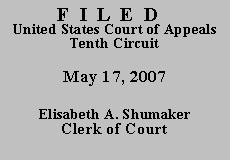

| LAWRENCE L. KELLY,
Plaintiff-Appellant, v. TOPEKA HOUSING AUTHORITY, Defendant-Appellee. |
|
In 2004, Mr. Kelly's adult son was arrested and charged with drug-related offenses that occurred near the apartment in which they both lived. Because of the arrest and charges, the Housing Authority stopped making his rent payments.
In Mr. Kelly's subsequent suit against the Housing Authority, the district court liberally construed his complaint to allege numerous causes of action, but concluded that none stated a claim upon which relief could be granted. And on appeal, we affirmed the order of dismissal. Kelly v. Topeka Hous. Auth., No. 04-3448, 147 F. App'x 723 (10th Cir. Aug. 30, 2005).
Nonetheless, in October, 2006, Mr. Kelly filed a "Motion For Permission To Reopen Case," R., Doc. 37, in which he attempted to reassert the same claims that were previously resolved by the district court and this court in Kelly. The court denied the motion and this appeal followed.
"The doctrine of res judicata, or claim preclusion, will prevent a party from relitigating a legal claim that was or could have been the subject of a previously issued final judgment." MACTEC, Inc. v. Gorelick, 427 F.3d 821, 831 (10th Cir. 2005), cert. denied, 126 S. Ct. 1622 (2006). Mr. Kelly's request to reopen his previous lawsuit is barred by the doctrine of res judicata because: (1) there was a final judgment on the merits of his earlier action; (2) there is an identity of parties; (3) there is an identity of claims; and (4) he had a full and fair opportunity to litigate his claims. See id.
The order of the district court denying the motion to reopen is AFFIRMED.
Entered for the Court
Circuit Judge
*. After examining the briefs and appellate record, this panel has determined unanimously that oral argument would not materially assist the determination of this appeal. See Fed. R. App. P. 34(a)(2); 10th Cir. R. 34.1(G). The case is therefore ordered submitted without oral argument. This order and judgment is not binding precedent, except under the doctrines of law of the case, res judicata, and collateral estoppel. It may be cited, however, for its persuasive value consistent with Fed. R. App. P. 32.1 and 10th Cir. R. 32.1.